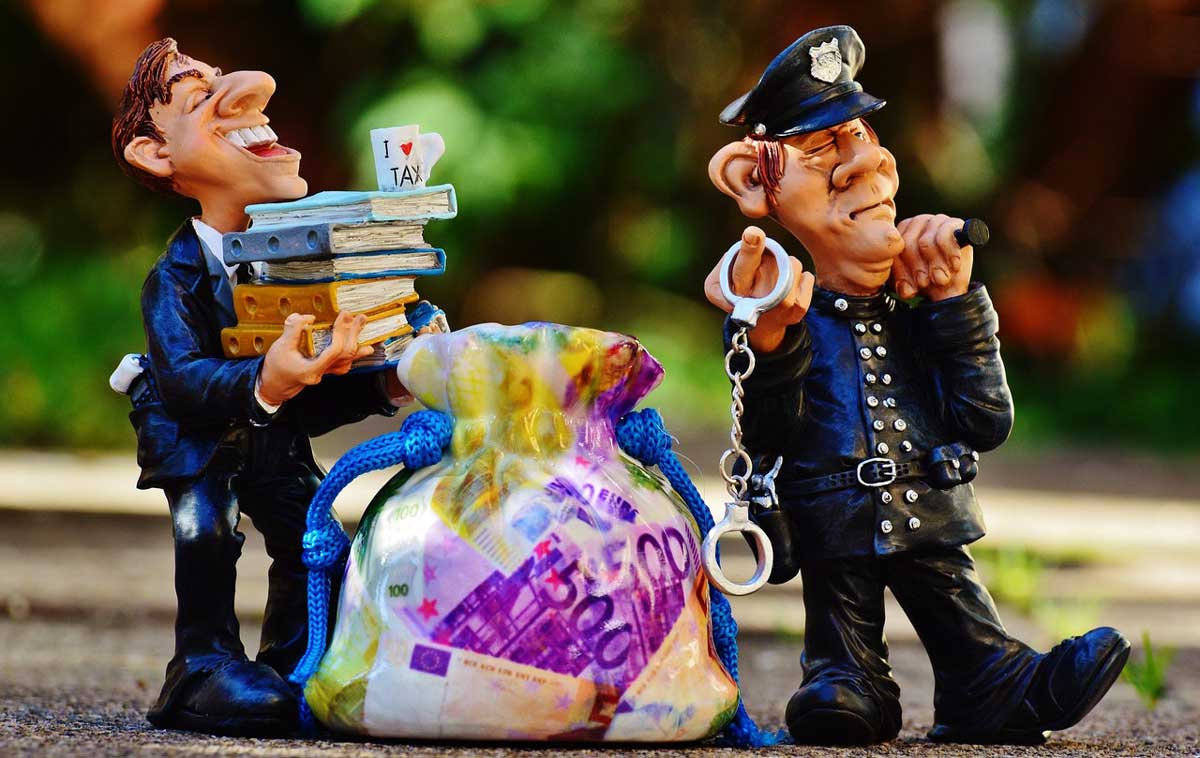Sadly, in the modern international business environment, bribery trouble has become a fact of life. Often its considered as the cost of doing business. Corruption is ubiquitous and persistent across much of the globe. In many places it is woven into the fabric of society. It should go without saying but payoffs, bribes or gifts should never, ever be a means to accomplishing your business goals.
Bribery Trouble in International Business Deals
Bribery is taken as a serious business offense. The penalties for breaking the rules of the country or even a company can damage your reputation. Large fines for the company and in some cases criminal convictions for prosecuted company executives. Some of these convictions have resulted in jail time for the guilty.
Let’s face it! When you do business outside your own borders, a lot of your activities become out of your control due to the vastness of the geographic reach. Add to that an ever-widening supply chain and an indirect route to international expansion (e.g., hiring agents, wholesalers, and distributors who represent you in good faith) and it further reduces effective control measures.
Learn More : Golden Rules for Dealing with International Clients
The solution? Designate someone at the top to be responsible for rules and regulation compliance and be accountable for anti-bribery and anti-corruption compliance policies.
Implement Anti-Corruption and Anti-Bribery Policies
The terms compliance, anti-corruption and anti-bribery policies and procedures have recently become trendier. Businesses in general and multinational corporations in particular are becoming more concerned about these issues, and have as a goal to meet the legal compliance obligations in order to reduce corruption risks.
One surefire way to stay clear of bribery trouble and exemplify that you mean clean or transparent international business is to include anti-bribery and anti-corruption terms in every single one of your contracts. This can be as simple as: “XYZ Company will not tolerate corruption with either our foreign partners or our own sales staff.”
Read More : How to Successfully Launch Your Product in A Foreign Market
You can even go so far as to incorporate a statement in your agreement with an agent or distributor that acknowledges that both parties (seller and buyer) recognize the existence of the anti-bribery and anti-corruption policy and will honor its rules and regulations by not making any improper payments.
Bribery, Corruption, Companies and Countries
Did you get the business because the new agent bribed the company in deal without you knowing? Obviously, one can dispute whether you knew or didn’t know (intent and knowledge), but only good international legal representation can guide you here. If proof, a conversation, text message or email indicating your awareness of a bribe that your agent engaged in doesn’t exist, you’ll need to provide evidence of your innocence through the court system which could be conducted in your own country or overseas dependent on the laws of the countries and the nature of the dispute.
Internationally Countries severely punish companies and the individuals associated with the company who are involved in the act of paying money or compensation to anyone who represents the company for the purpose of landing an international business deal or retaining business or even those who attempt to create an unfair advantage.

What Companies Can Do to Mitigate Corruption Risks
Companies doing business internationally must increase their level of care on anti-bribery and all anti-corruption scenarios. Especially when operating in locations that might be prone to irregular behaviors.
In 2016, the International Organization for Standardization (ISO) released the first set of standards designed to help organizations prevent and detect bribery. The ISO 37001 standard might become the proper benchmark for assessing and managing anti-bribery and corruption systems.
Businesses should consider some of these specific measures:
- Internally (and externally) assess the level of corruption risk in the operating country. Like corporate risk mapping, or simpler tools such as Transparency International’s Corruption Perceptions Index.
- Send a strong message to international business managers by setting a strict standard of behavior and principles to be applied globally.
- Apply a proper anti-corruption policy adapted to the industry or sector (Code of Business Ethics), through benchmarking and risk assessment and previous sanctions analysis (a proper review of past anti-bribery and anti-corruption sanctions).
- Closely verify the track record of outsourcing providers, local agents, distributors or intermediaries. In case of convictions for corruption offences, these companies should be excluded from the providers list.
- Make sure people in charge are trusted people, capable of making sound moral judgments and demonstrate prudent ethical decisiveness.
- Train the local management and employees on anti-corruption policies (the company’s and global standards). These training sessions are normally held once a year. Additionally, It should be provided in the local language to guarantee the understanding of the policies.
- Provide a follow-up system and mechanism to verify that the policies are being properly followed, including third-party contracts.
- Conduct periodic performance tests (audits). As well as examine public industry reports to be delivered to public authorities and other relevant parties.
Most major companies have already introduced and are performing most of these tasks. However, without a constant, independent monitoring of all involved parties, there is always a risk that some element of the chain might fail. A proper anti-corruption culture must be the credo of the company providing recurring due diligence exercises, internal audits; The realization that the constant upkeep of these policies is the only way to reduce any negative outcome.
What Should You Do If You Are Part of a Bribe?
You can always report a bribe. Detecting bribery and at the same time keeping clean financial records is not easy, yet a smart, prudent step. Business owners and manger should be establishing checkpoints that prohibit bribery in every step of the international business. We all have a responsibility to combat bribery in global business. Let’s work together to do our part.
Do you know How to Stay Clear of Bribery Trouble in International Business Deals? Comment them on Trdinoo for others to learn. Please subscribe and share us with your friends and networks.
